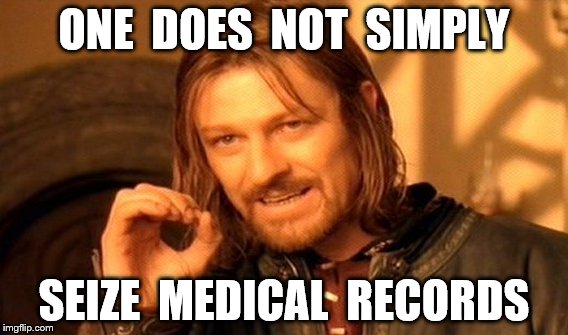A child custody case can be a tough battle for the parties involved and the parties must prove to the court that they are fit to hold custody of the child. Since both parties want to have custody, the judge is obliged to consider a number of factors, among them, the physical and mental health of both parents.
The reason why the court may require to understand the mental and physical health of the parents is when there is so much strife between the parents, and where the parents are in high conflict such that they cannot agree on any issue and this may require the judge to get as many evidence as possible so that he or she can make decisions that are in the best interests of the child.
What Medical Records Are Relevant?
This simply means the documentation showing the history of a patient’s medical or health history. In a child custody case, medical records that may be relevant may include mental health records, substance abuse records, and other physical health records that may be helpful for a judge in making determinations regarding a child custody case.
Are Medical Records Confidential?
Most of the states consider medical records confidential. For instance, in Utah, the communication between the doctor and a patient is confidential under the Rules of Evidence 506. How then does the judge obtain medical information about the mental and physical health of the parents?

It is important to understand that, there is no absolute right to confidentiality to these rights when you are accused of suffering from the same by one party in a child custody case, or when that party requests for the health records to show that you are unfit to hold custody.
For instance, in the case of child abuse by one parent, the court may find out that the parent who perpetrated abuses may have mental health conditions. In this situation, a parent, for example, may have repeatedly threatened to strangle the child or may continually have suicidal tendencies. This may prompt the judge to subpoena the parent’s health records.
While the Utah Rule of Evidence 506 considers the health records confidential, there are exceptions in section (d)(1) of the same chapter that provides for the exceptions. This is where the cases of emotional, mental, or physical health of the parent are required for use in a child custody case.
In Illinois, the law allows for the disclosure of health information where there is expressed consent from the health care practitioner and the patient. However, while it may be easy to obtain physical health records, the Mental Health and Developmental Disabilities Confidentiality Act (MHDDCA) serves to protect the rights of these groups of people.
The Act prevents the disclosure of mental health records of a patient except in extraordinary circumstances. Therefore, for these records to be used in a child custody case, the attorney must seek consent from the therapist and the patient or the other parent involved in the case.
How Do Judges Deal with Privacy Rules?
Since a party may seek the other party’s medical or health records, that party must consent to the requests for the medical records to be used. This is according to American law, or the HIPAA’s privacy rule. In this regard, a judge may take a balanced approach that seeks to protect the rights of both parties and use the present ability and condition. This means the past information on the health of a parent may not be used, rather, the judge may order for independent evaluations from an independent psychiatrist to be used in a child custody case.
Best Interests of The Child and Parents with Mental Illnesses
The best interests of the child or children are what guides the judges’ decision. At all times, the judge must make decisions that are in the best interests of the child. As we mentioned, the judge will consider some factors that include:
- Mental and physical health of both parents.
- The ability of the parent to provide a good living environment to the child.
- The age of the child or children and their preferences.
- Stability of the child.
- Cases of domestic violence and child abuse.
- The level and quality of the relationship between the parent and the child.
While these are the considerations, it means that the medical records are important when one parent is believed to be having an illness that could make him or her unfit to take custody of the child or children.
In this case, one party in a child custody case may seek the court to evaluate the medical records of the other party or conduct independent evaluations to see whether the parent is mentally or physically fit to have custody of the child.
The party requested to provide medical or health records of my consent or refusal but that does not mean the end of the road. When a party refuses to provide the records, the judge will have an alternative option to have the health state of that parent evaluated or may order the party to disclose the records to the judge where he or she will analyze and see whether that is admissible as evidence or not.

Where the party consents to disclose the medical records, those records are then examined to evaluate whether the parent is fit to have custody or not. It is also important to note, a parents’ mental illness or disorder may not disqualify him or her from having custody or visitation rights. This will depend on the severity and how the parent is responding to the treatment plan.
Conclusion
As we have noted, medical records can be useful in a child custody case. It is one of the factors that the court will consider before making decisions regarding child custody. In addition to that, the privacy law may require the parties to consent before their medical records are disclosed for use in a child custody case or any other case but there are exceptions as well as we have discussed.
Also, the judge may opt to use independent psychiatrists to evaluate the mental state of the parents before making decisions on who to take custody of. We can, therefore, say, medical records can be used in child custody cases.





